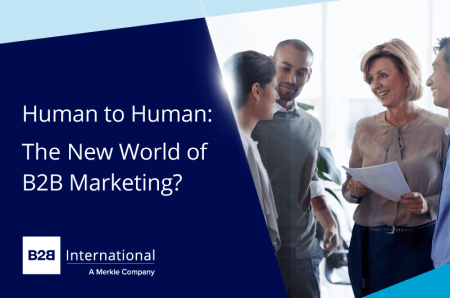
Behavioral psychology suggests behaviors are a result of the interactions with our environment and focuses on understanding our thoughts, feelings and behaviors through behavioral and cognition theories. This term was first introduced by John B. Watson in 1913, and since a range of theories have emerged such as the social learning theory and conditional theories. However, one theory that has had some precedence within the B2B world is the ‘System 1 and System 2’ theory.
This was introduced by Kahneman and Tversky in the 1970s to understand to what extent humans are rational or irrational decision-makers. They suggested our decision-making processes are split into these two systems. System 1 operates automatically with little attention or thought and dominates our thinking with 98% of the 35,000 decisions we make every day, going through this system. System 2 is the slower and analytical decision-making system, which requires more attention. This system is only used for around 2% of our thinking. Despite B2B decision makers being recognized as more thoughtful and rational thinkers, research suggests that B2B decision makers are in fact more illogical than first thought and use System 1 more frequently for their decision-making process.
System 1 has brought about further investigation, and a further theory which has stemmed from this is called the ‘False Consensus Theory’. This theory indicates that due to System 1 type thinking, we see our own behavioral choices and judgements as relatively common and project our own views and attitudes onto others. Research conducted in 2016 demonstrated this by showing how senior decision makers over-estimated the reading habits of other senior decision makers based on their own. In the study participants were asked whether they read The Economist, and to estimate what proportion of other senior business decision makers read The Economist. Non-readers estimated around 27%, whereas for readers this figure nearly doubled to 50% – therefore, those who were readers significantly over-estimated how many other decision makers also read The Economist.
This has some implications within the B2B context, as it suggests how even senior decision makers are susceptible to their own biases, projecting their own lifestyles on to their audiences, assuming they fit a similar cultural background or demographic. However, basing marketing decisions on these assumptions can lead to a number of mistakes. For example, focusing on channels and tactics that don’t align with the audience can mean businesses are not reaching their audience effectively and thus these marketing efforts will have little impact.
This has led to the view that the B2B and B2C world are not all that different, and instead the market should be seen as ‘Human-to-Human’. This concept represents that behind every decision in any type of organization, there is a human making that decision, all of which go through similar decision-making processes and biases which can impact them. Implementing a human element can be a real differentiating factor for businesses as it can enable them to touch on people’s emotions which is a monumental driver in the buyer’s journey.
Our Research and Insights Director, Wendy Joice-Denhard has recently presented at B2B Marketing Ignite USA with Merkle B2B’s Head of Client Experience, Chris Hill, to discuss how you can win with emotion in B2B Marketing. Listen to their on-demand presentation here.
If you are struggling to engage with your target audience effectively, it might be that you need to understand that consumer in more depth. B2B International can not only help you strengthen your brand, it can help you create personas, understand customer needs and challenges, and also provide a superior customer experience tailored to your target prospect.
To discuss your business needs and objectives and determine how our research can help, reach out to one of our research experts here.


